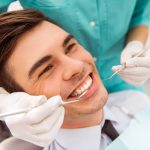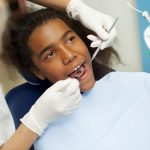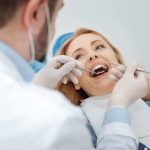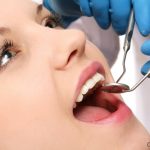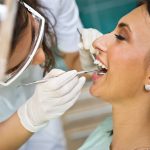Ultimate Guide: How to Safely Brush Teeth After Wisdom Teeth Removal

Wisdom teeth removal is a common dental procedure that many people undergo. Although it is a routine procedure, it can cause some discomfort and pain in the days following. A significant part of post-operative care involves maintaining good oral hygiene to prevent infections and promote healing. Brushing teeth after wisdom teeth removal can be challenging, as the mouth is sensitive, and the risk of injury is high. However, it is crucial to take care of your teeth to avoid complications that can prolong the healing process. This ultimate guide will provide you with practical tips and guidelines on how to safely brush your teeth after wisdom teeth removal. It is essential to understand that brushing your teeth after wisdom teeth removal is not the same as your regular brushing routine. The mouth is in a delicate state, and the surgical site needs to heal correctly. Improper brushing techniques or using the wrong tools can cause damage and delay the healing process. This guide will give you a step-by-step approach to brushing your teeth safely and effectively. You will also learn about the different tools and products that can aid in maintaining good oral hygiene while you recover from wisdom teeth removal. By following the tips and guidelines provided, you can minimize the risk of complications and ensure a smooth recovery process.
Brushing your teeth after wisdom teeth removal is crucial for maintaining good oral hygiene and preventing infection. The extraction site is an open wound that is vulnerable to bacteria and food particles. Brushing helps remove any debris that may have accumulated around the wound, reducing the risk of infection. However, it is important to be gentle and avoid the extraction site, as vigorous brushing may cause bleeding or damage the wound. Using a soft-bristled toothbrush and rinsing with warm salt water can also help alleviate discomfort and promote healing. By following proper brushing techniques and maintaining good oral care, you can ensure a smooth and speedy recovery after wisdom teeth removal.
The article \Ultimate Guide How to Safely Brush Teeth After Wisdom Teeth Removal\ offers a comprehensive guide on how to maintain good oral hygiene after undergoing wisdom teeth removal surgery. The article starts by explaining what wisdom teeth are and why they need to be removed. It then goes on to discuss the common problems that arise after the surgery, such as swelling, pain, and difficulty in eating and drinking. The article provides practical tips on how to brush your teeth safely and effectively after the procedure, including the importance of using a soft-bristled toothbrush and avoiding certain foods and drinks. The article also offers advice on how to manage pain and swelling, including the use of ice packs and over-the-counter pain medication. Overall, this guide is a valuable resource for anyone who has undergone wisdom teeth removal surgery and wants to ensure they maintain good oral hygiene during the recovery period.
When to Brush Your Teeth After Wisdom Teeth Removal
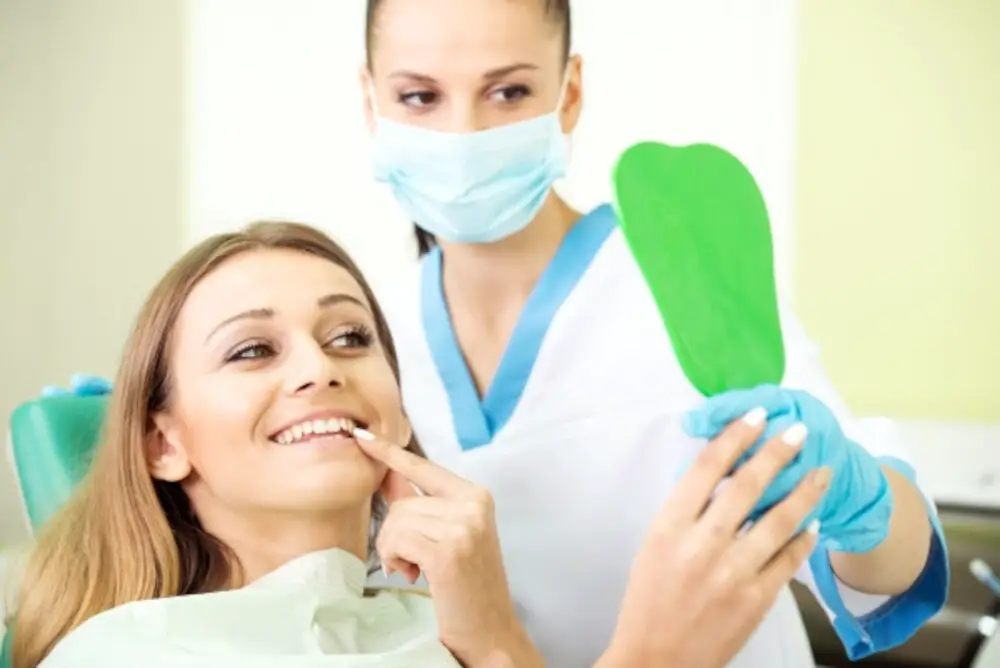
After having your wisdom teeth removed, it is essential to follow the post-surgical instructions provided by your dentist or oral surgeon. One of the most crucial parts of your post-operative care is knowing when to brush your teeth. It is recommended that you wait at least 24 hours after your surgery before brushing your teeth. Brushing too soon can cause bleeding and further irritation to the surgical site, which can prolong the healing process. When you do start brushing, it is essential to be gentle and avoid the surgical area as much as possible. Use a soft-bristled toothbrush or an electric toothbrush, and be sure to brush all areas of your mouth except for the surgical site. It is also recommended that you rinse your mouth gently with saltwater after brushing to help reduce swelling and promote healing. Once the first 24 hours have passed, you can start brushing your teeth, but it is important to do so carefully. Brushing too aggressively can cause bleeding, pain, and further irritation to the surgical site. Instead, use a gentle brushing motion, focusing on the teeth away from the surgical site. It is also recommended that you avoid using toothpaste for the first few days after surgery, as it can be too abrasive and cause further irritation. Instead, you can use a non-alcoholic mouthwash or a saline solution to rinse your mouth. Remember to continue to rinse your mouth with saltwater after brushing to help reduce swelling and promote healing. By following these post-operative care instructions, you can help ensure a smooth and comfortable recovery after wisdom teeth removal.
After having wisdom teeth removed, it’s important to take extra care when brushing teeth to avoid damaging the sensitive surgical area. It’s recommended to wait at least 24 hours before brushing teeth, giving the blood clot time to form and stabilize. During this time, rinse your mouth gently with warm saltwater to keep the area clean. Once the 24 hours have passed, use a soft-bristled toothbrush and gently brush your teeth and gums, avoiding the surgical site. As the healing process progresses, gradually increase the area you brush until you can brush the entire mouth again. It’s important to follow these guidelines to ensure a safe and speedy recovery after wisdom teeth removal.
It is crucial to follow your dentist’s instructions after wisdom teeth removal to ensure a speedy and comfortable recovery. Disregarding their advice could result in complications such as infections, dry sockets and prolonged pain. Your dentist will provide you with a specific set of instructions tailored to your individual case, including proper brushing techniques, pain management, diet restrictions and oral hygiene tips. By adhering to their guidance, you can prevent any potential complications and promote healing in the affected area. Trusting your dentist’s expertise will not only ensure a successful recovery, but also improve your overall dental health in the long run.
How to Brush Your Teeth After Wisdom Teeth Removal
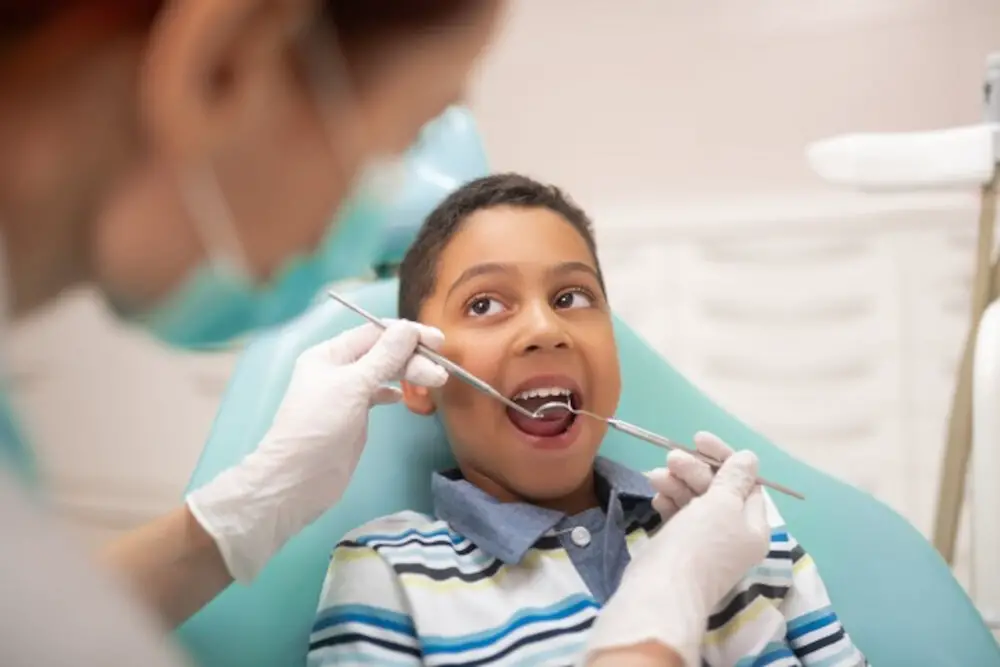
After wisdom teeth removal, brushing your teeth can be a daunting task. However, maintaining oral hygiene is critical to prevent infection and promote faster healing. It is recommended to wait for at least 24 hours after surgery before brushing your teeth. Once you are ready, you should brush your teeth gently and avoid the surgical site. Use a soft-bristled brush to prevent any damage to the gums or teeth. You can also use an antiseptic mouthwash to rinse your mouth gently. This will help clean the mouth and prevent any bacterial growth that could cause an infection. It is essential to follow these steps carefully and ensure that you do not apply too much pressure on the surgical area. Another crucial aspect of brushing your teeth after wisdom teeth removal is to ensure that you do not disturb the blood clot that forms over the surgical area. This clot is vital in the healing process, and any disturbance could lead to a condition called dry socket. Dry socket is a painful condition that can delay the healing process significantly. Therefore, it is vital to be gentle while brushing your teeth and avoid using any toothpaste or mouthwash that contains alcohol or peroxide. These ingredients can irritate the surgical site and cause further discomfort. You can also use a saltwater rinse to promote healing and prevent any bacterial growth. Overall, brushing your teeth after wisdom teeth removal requires patience and care. By following these guidelines, you can ensure that you maintain good oral hygiene while promoting a faster healing process.
After wisdom teeth removal, it is crucial to brush your teeth gently and carefully to avoid damaging the extraction site. First, choose a soft-bristled toothbrush and use gentle circular motions to clean each tooth. Avoid brushing too hard, as this can cause bleeding and irritation. Be sure to focus on the areas around the extraction site, but also clean the rest of your teeth thoroughly. Use a fluoride toothpaste to strengthen your teeth and prevent decay. After brushing, rinse your mouth gently with warm salt water to help promote healing. Remember to brush your teeth twice a day, and be patient as your mouth heals. By following these guidelines, you can safely brush your teeth after wisdom teeth removal and maintain good oral hygiene.
After wisdom teeth removal, it is important to take extra care when brushing your teeth to avoid causing any harm or discomfort to the extraction site. To do this, you should avoid brushing the area directly around the extraction site for the first few days after the procedure. Instead, focus on brushing the other areas of your mouth, such as your front and back teeth, using a soft-bristled toothbrush or an electric toothbrush on a low setting. Additionally, you should rinse your mouth with saltwater or an antibacterial mouthwash to help keep the area clean and reduce the risk of infection. By following these tips, you can ensure a safe and comfortable recovery after your wisdom teeth removal.
What to Avoid When Brushing Your Teeth After Wisdom Teeth Removal
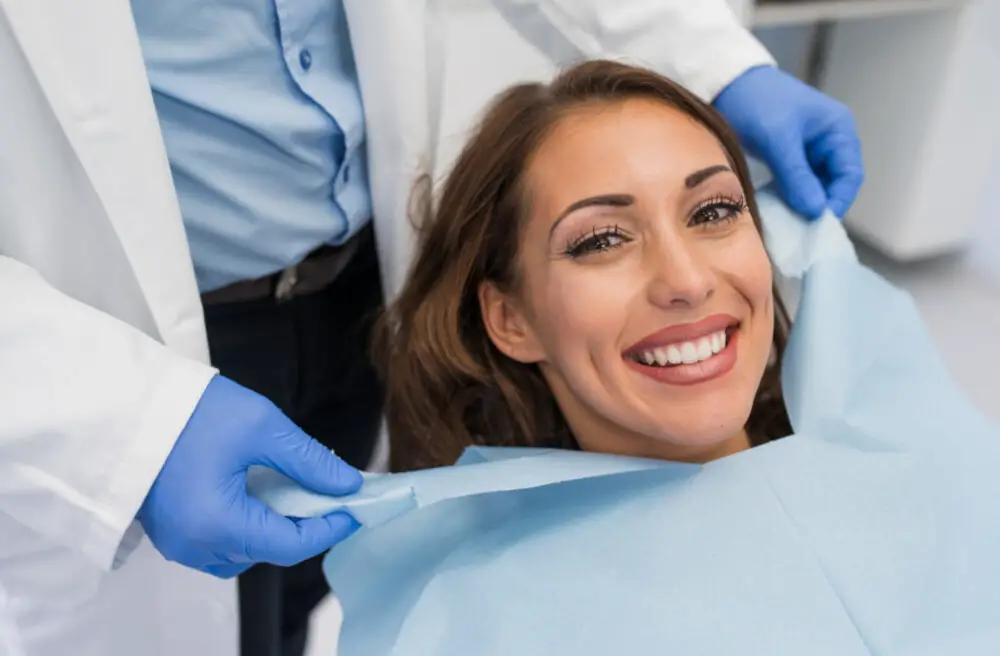
After a wisdom teeth removal procedure, it is crucial to follow proper dental hygiene practices to ensure a speedy and safe recovery. One of the most important guidelines to adhere to is avoiding certain actions when brushing your teeth. Firstly, it is important to avoid brushing too vigorously or aggressively, as this can dislodge the blood clot that forms in the socket where your wisdom teeth were extracted. This clot is essential for the healing process, and any disruption can result in a painful and prolonged recovery. Instead, use gentle circular motions to clean your teeth and avoid the surgical site until it has fully healed. In addition to avoiding aggressive brushing, it is also essential to avoid using toothpaste that contains harsh ingredients, such as alcohol or hydrogen peroxide. These ingredients can irritate the surgical site and delay the healing process. Instead, opt for a gentle toothpaste that is free from harsh chemicals and additives. Furthermore, avoid using mouthwash or any other oral hygiene products that contain alcohol, as this can also cause irritation and discomfort. By following these guidelines, you can ensure a safe and effective brushing routine after your wisdom teeth removal procedure, and promote a speedy and successful recovery.
After wisdom teeth removal, it is important to avoid certain foods and activities to promote proper healing and prevent complications. Firstly, hard and crunchy foods should be avoided as they can irritate the surgical site and damage the blood clot, leading to a painful condition called dry socket. Additionally, sticky and chewy foods should be avoided as they can get stuck in the surgical site and promote bacterial growth. Acidic and spicy foods should also be avoided, as they can cause discomfort and irritation. As for activities, smoking and using straws should be avoided for at least a week after surgery, as the suction can dislodge the blood clot and delay the healing process. Vigorous exercise should also be avoided for the first few days after surgery, as it can increase bleeding and swelling.
Certain habits can significantly impact the healing process after wisdom teeth removal. One such habit is smoking which can delay the healing process by reducing blood flow and increasing the risk of infection. Similarly, consuming alcohol can also hinder the healing process by thinning the blood and interfering with the body’s ability to heal. Additionally, consuming hot or spicy foods can irritate the surgical site and cause inflammation. It is important to avoid these habits and follow the post-operative instructions provided by your dentist to ensure a smooth and speedy recovery. Proper care and attention can lead to a healthy and successful healing process.
Other Oral Care Tips After Wisdom Teeth Removal
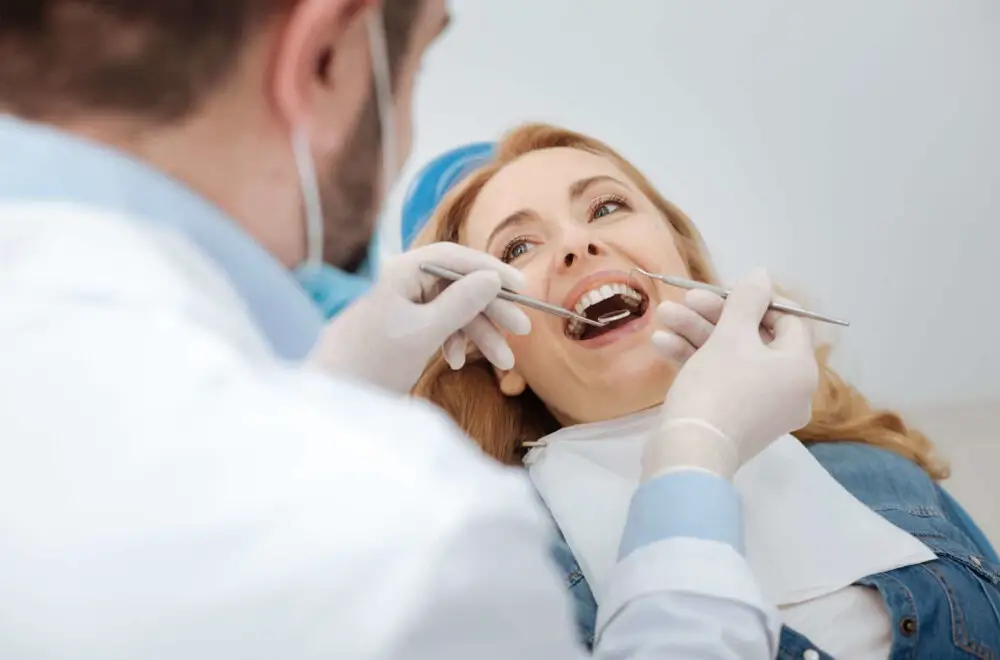
After wisdom teeth removal, it’s essential to take extra care of your oral hygiene to avoid infections and promote faster healing. Apart from brushing, there are other oral care tips that you should follow. One of the most crucial tips is to rinse your mouth with saltwater several times a day. Saltwater helps to reduce swelling, soothe pain, and prevent infections. To make a saltwater solution, mix a teaspoon of salt in a cup of warm water and swish it around your mouth for 30 seconds before spitting it out. You can do this after meals, before bed, and any time you feel discomfort. Another tip is to avoid smoking or using any tobacco products for at least a week after your wisdom teeth removal. Smoking can delay the healing process and cause dry sockets, which are painful inflammations. You should also avoid drinking alcohol, carbonated beverages, and hot or cold drinks for the first 24 hours after surgery. These drinks can irritate the surgical site or dislodge the blood clot, which can cause bleeding. Instead, drink plenty of water and eat soft foods that are easy to chew and swallow, such as soups, smoothies, and mashed potatoes. By following these tips, you can ensure a smooth and speedy recovery after your wisdom teeth removal.
After wisdom teeth removal, it is essential to be careful and gentle with your mouth to avoid complications. Rinsing your mouth is an important step in maintaining oral hygiene and promoting healing. The first 24 hours after surgery, avoid rinsing your mouth, and after that, rinse with warm saltwater. Use one teaspoon of salt in a glass of warm water and swish it around your mouth for 30 seconds, then spit it out. Avoid using mouthwash or any other liquids, as they may contain alcohol and other chemicals that can irritate the wound. Rinse your mouth after every meal and before bedtime to remove food particles and bacteria. Be gentle and avoid any vigorous movements that can dislodge the blood clot and cause bleeding.
After wisdom teeth removal, patients are advised to wait at least 24 hours before resuming flossing. However, it is essential to consult with your dentist or oral surgeon before restarting flossing. If you experience any discomfort or bleeding while flossing, you may need to wait a little longer before resuming the practice. Once you get the green light to floss again, start gently and take your time. Use a soft-bristled toothbrush and floss gently, being careful not to irritate the surgical site. As the healing progresses, you can gradually increase the pressure and intensity of your flossing routine. Remember, proper oral hygiene is crucial for healing and maintaining good oral health, so never skip flossing, even after wisdom teeth removal.
After wisdom teeth removal, pain and discomfort are common. There are several suggestions for pain relief that can help make the healing process more comfortable. Applying ice packs to the affected area for 20 minutes at a time can help reduce swelling and numb the pain. Over-the-counter pain medication such as ibuprofen or acetaminophen can also help alleviate discomfort. It is important to follow the dosage instructions on the label and not exceed the recommended amount. Rinsing the mouth with warm saltwater can help reduce inflammation and promote healing. Additionally, avoiding hard and crunchy foods and sticking to a soft food diet can prevent irritation to the affected area. By following these suggestions, patients can safely and effectively manage pain after wisdom teeth removal.
Proper oral care after wisdom teeth removal is crucial for a speedy and successful recovery. The surgical removal of wisdom teeth can cause discomfort, swelling, and bleeding, making it essential to take care of the affected area to prevent infection and promote healing. Following the dentist’s instructions, including rinsing with saltwater, avoiding hard or crunchy foods, and applying ice packs to the cheeks, can help alleviate pain and reduce inflammation. Moreover, brushing the teeth gently and avoiding the surgical site can prevent dislodging the blood clot and causing a condition known as dry socket. Neglecting proper oral care after wisdom teeth removal can lead to complications such as infection, prolonged pain, and delayed healing, which can affect the patient’s overall health and well-being.
Taking care of your teeth is a crucial aspect of maintaining good oral health. It is imperative to follow the advice of your dentist to prevent any dental problems in the future. Neglecting dental hygiene can lead to a host of issues such as cavities, gum disease, and even tooth loss. Moreover, after wisdom teeth removal, it is crucial to take extra care of your teeth to ensure proper healing. While it might be tempting to indulge in your favorite foods or skip brushing your teeth, it is essential to resist these urges and follow your dentist’s instructions. By doing so, you can avoid any complications and ensure a speedy recovery. Remember, taking care of your teeth is an investment in your overall health and well-being, so make sure to prioritize it.
Conclusion
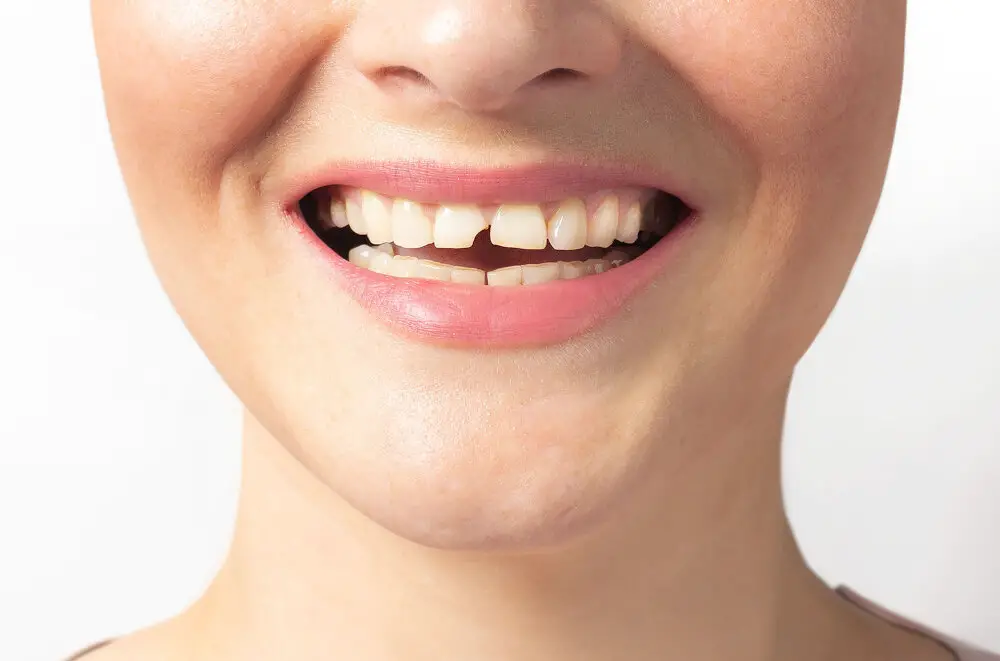
In conclusion, brushing your teeth after wisdom teeth removal is a crucial step in the healing process. It is important to follow the recommended guidelines and techniques to ensure that you do not damage the sensitive area. Using a soft-bristled brush, a gentle touch, and avoiding certain areas will help to prevent any complications and promote a speedy recovery. Remember to also maintain good oral hygiene practices, such as rinsing with saltwater and avoiding hard and crunchy foods. By taking the necessary precautions, you can ensure that your recovery after wisdom teeth removal is as smooth and comfortable as possible.

